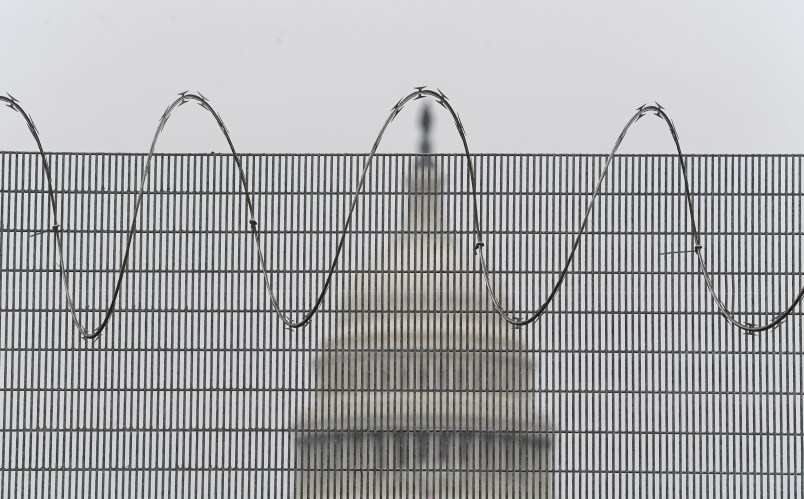While disparate congressional committees have chipped away at what exactly allowed a pro-Trump mob to muscle into the Capitol building on January 6, one thing has become clear: the opacity cloaking the inner workings of the Capitol police.
Much of that scrutiny has become focused on the Capitol Police Board, the overseeing body of the force comprised of the architect of the Capitol, House and Senate sergeants at arms and the chief of police in a non-voting role.
The board has authority over almost all of the security decisions made at the Capitol, but received little attention until the January 6 disaster. Calls for its reform have become a bipartisan unifier as lawmakers look to improve Capitol security.
While the attack unfurled, calls bounced back and forth between the sergeants at arms, eating away crucial time as they struggled to communicate about bringing in National Guard backup.
During a hearing before the House Administration Committee on Wednesday, Rep. Barry Loudermilk (R-GA) asked Capitol Police Inspector General Michael Bolton which “entity” has oversight over the board.
“Actually, sir, I went back and tried to research that just for my own edification — I don’t believe there is any actual oversight of the board,” Bolton said.
“Hmm,” Loudermilk responded, seeming taken aback. “That’s interesting. I would guess if there’s any oversight, it would be this committee.”
Rep. Bryan Steil (R-WI) echoed Loudermilk’s bafflement a few questions later, exclaiming “holy smokes!”
“It’s my opinion that this committee has a responsibility to oversee the Capitol Police Board, including those members appointed by Speaker Pelosi,” he added with a little partisan zing.
He asked committee chair Zoe Lofgren (D-CA) if they’d be able to schedule a hearing specifically on the oversight of the board in the near future. She was noncommittal, saying they were taking a comprehensive look at all the elements of Capitol security.
The revelation is just another reason we know so little after the historic security failure at the Capitol. While committees have tried to get their teeth into various pieces of the day — and a more comprehensive report is expected from the joint Senate Rules and Homeland Security committees next month — they’ve been stymied by the difficulty in getting all the players in the same room at once. A hallmark of the hearings so far has been buck-passing.
There was also a wave of resignations in the wake of the attack, further muddying the waters.
Bolton, the inspector general, has been releasing “flash reports” on the security meltdown, including an explosive one earlier this month revealing that officers were instructed not to use their most aggressive tactics even when it was clear that Congress was a potential target.
In the first round of hearings before the House Administration Committee, he also told of expired munitions and civilian employees being dispatched to deliver more weapons in the midst of the insurrection.
Immediately after the attack, lawmakers on both sides of the aisle called for a 9/11-style commission to bolster the various committee investigations. But that momentum has since evaporated, primarily due to a disagreement on scope. Democrats want the commission to include in its investigation former President Donald Trump’s conspiratorial lies that formed the basis for the attack, while Senate Minority Leader Mitch McConnell (R-KY) said this week that he’d want the commission to investigate “violent disturbances around the country last year,” a reference to his desire to include Black Lives Matter protests in the probe.
House Speaker Nancy Pelosi (D-CA) reportedly altered her commission proposal on Monday to balance the number of Republican and Democratic appointees — another initial source of GOP griping, but one Pelosi repeatedly said she’d be willing to negotiate on — which could inch the commission nearer to reality. But McConnell said Tuesday he hadn’t even heard of the changes to the proposal, capturing the current chasm between the parties.



